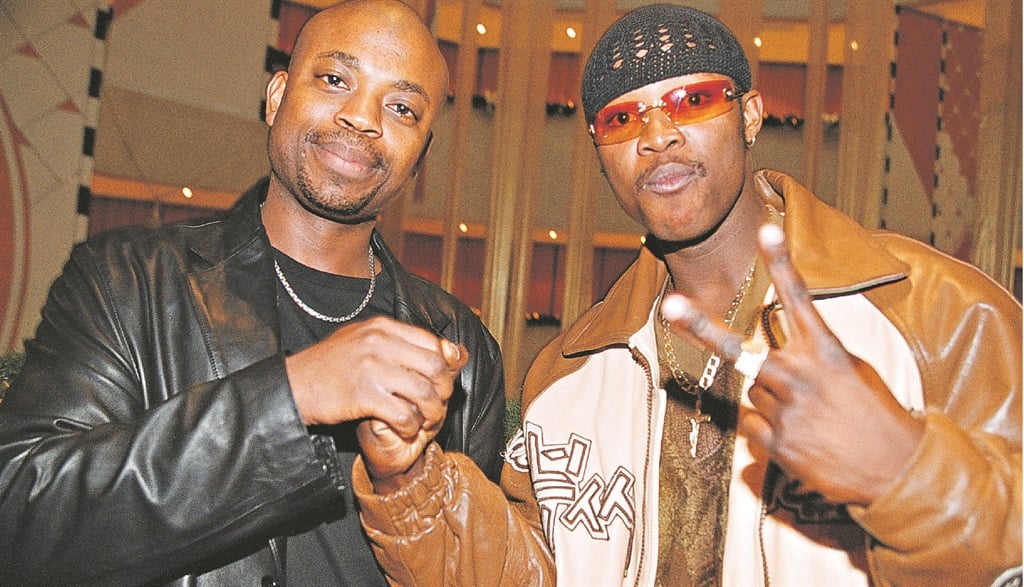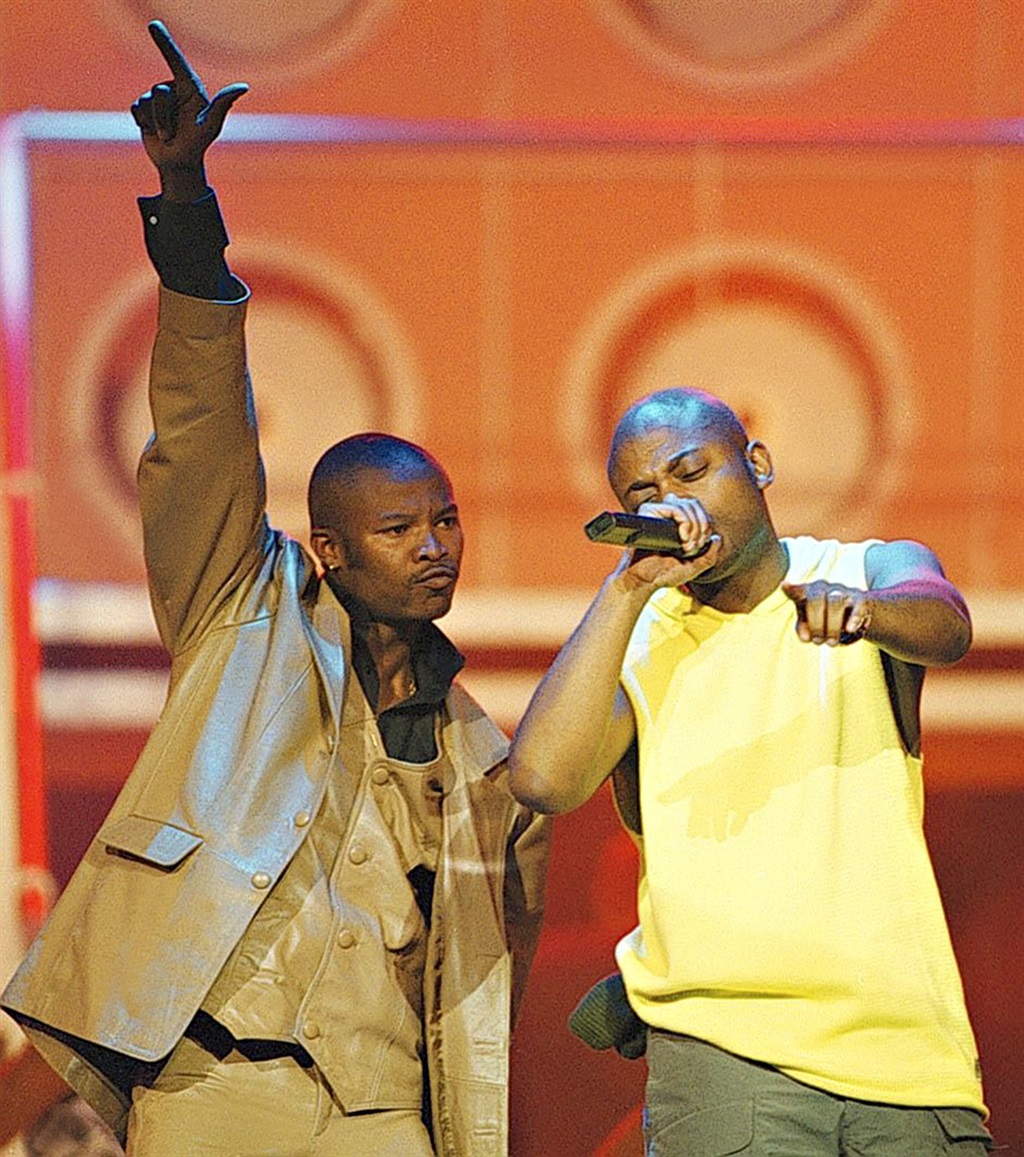
As I got ready to speak to kwaito legend Mduduzi “Mdu” Masilela earlier this week, it occurred to me that he and the late Mduduzi “Mandoza” Tshabalala share a name: Mduduzi.
Of course it’s a pretty obvious fact, but I had never made the connection and suddenly it seemed very poignant, considering how close they were.
In addition, Mandoza and Mdu both grew up in Soweto.
Growing up
Mdu says: “We both came from eZola South, eOne. Mandoza grew up as a younger brother to me. He loved BMX bikes, and he and his friends were i-skeem sama [a crew of] BMXes. From early on, Mandoza always had an interest in music and would tell me about his dreams of getting out of where we were and making a name for himself as an artist.”
So they shared the dream of music too, of telling the story of being young, black and from Zola in a quickly changing South Africa. In the early 90s, Mdu’s impressive career began as a member of the group Mashamplani.
He says Mandoza and the founding members of what would become the group Chiskop – Siphiwe “The General GTZ” Sibisi, Sizwe Motaung and Sibusiso Thanjekwayo – would come to his mother’s house where he was living at the time and ask him to get them into music.
They then met House music producer Tim White and Arthur Mofakate, the king of kwaito, who gave them their big break.
“He and the other members of Chiskop took the idea we’d had with Mashamplani and did the same with Chiskop, which was to use the group as a platform to launch their solo careers.”
Chiskop’s debut album would get them noticed with songs like Klaimar, and Mdu says that he and Mandoza shared knowledge and tips.
“Even though I was his older brother, I had a lot I could always learn from him too, and he was always willing to teach.”
Going solo
In the later part of the 90s, Mdu says Mandoza decided he was ready to go solo, something he’d always wanted to do.
“They [Chiskop] had got in and established themselves and the time was right for them to try new things. They knew that iChiskop kusekhaya [Chiskop would always be home].”
I ask whether, knowing what he did about the game and fame, he worried for his little brother.
“Of course I was worried. There were so many things that could distract you, so many ways to lose focus, but I knew that since we were in Zola, you could go to an elder when you needed advice. He got excited sometimes and sometimes excitement can blindfold you.
"But he seemed to be clear and focused about what he wanted, and when he released Sgelegeqe Es’focused [in the early 2000s], I knew that he was clear on what he wanted, and that gave me some comfort. He also started talking about marriage, which I encouraged, because having a person that you knew was your one and only was also important.”
Drugs and alcohol were the most serious threat for many of kwaito’s biggest stars.
“At the end of the day, we weren’t perfect. Even though I was older and I had started music earlier, I wasn’t perfect,” says Mdu.
“And sometimes even though someone has told you ‘don’t do this’, you do it and then you hit your head against a wall and realise that this wasn’t the right thing to do.”
Mdu speaks of the artists that broke out first as almost like a council of elders and mentions among them the likes of Doc Shebeleza.
Although Mandoza’s career is often marked with the release of his second album, Nkalakatha, and the massive success of the title single, for his many fans his contribution was so much bigger.
“He made music that made sense to so many young black kids in townships, in cities, like ourselves.”
50/50
In 2009, Mandoza and Mdu would gift fans with another hit with the release of their collaboration, 50/50.
Mdu laughs as he tells me how Mandoza came to find him at home, where he also had a studio, after Mandoza and his wife, Mpho, had had a disagreement.
“We spoke about some of our challenges, which included being young performers that were always on the road, but with wives. And as we spoke, I kept thinking about the song I had written and recorded, which was about men who make it, start making money and then treat the women in their lives with neglect, but we need to make it 50/50 – 50% for ourselves and careers and friends, 50% for our partners.”
After their chat, Mandoza added his vocals to the song.
“I knew I wanted him on the song, and it just so happened that we found the perfect one ... When we were done, I told him to go to his wife and to practise 50/50, while I told my wife that I had to finish this song.”
It went on to appear on both Mandoza’s Tornado album and Mdu’s The Godfather.
“People kept asking whose song it was and we said it was both of ours.”
Goodbye
Mdu gets contemplative when he speaks about his last few interactions with his “little brother”.
“When I saw him about a week ago, he said to me: ‘Ngi-grand, ngi-sharp, unga-worry ngami [Don’t worry about me].’”
Mandoza would encourage him not to give up making music.
“I’ve been doing music all my life, making music, doing shows for a long, long time now and I wanted something different. So I dismantled my studio and he and General [Sibisi] were on my case about it, even joking and saying that they are going to stage a protest at my home.”
When they spoke a week ago, Mandoza raised the issue again.
“He told me that I couldn’t quit music. He said that the hip-hop kwaito sound started with me, so I couldn’t stop. And maybe God was talking to me through him, because my purpose is to entertain. I agreed to keep making music, so now it’s a lifetime bond and promise that I’ve made to my little brother.”
He goes quiet for a bit.
“Mandoza became an icon. He took his fame, his music, and made himself an icon. Not everyone can do that.”




 Publications
Publications
 Partners
Partners











